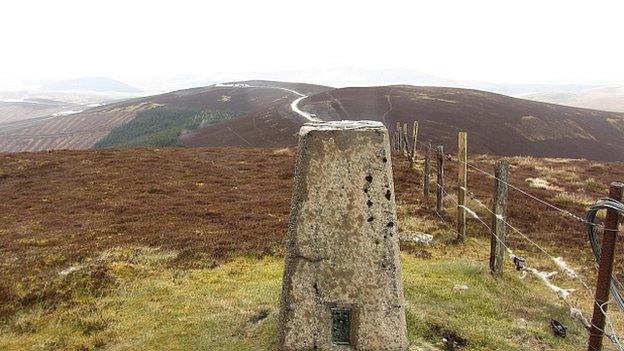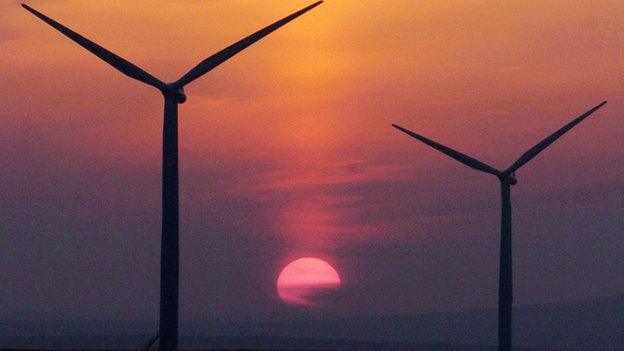Whitelaw Brae wind farm approval 'ignores tourism'
- Published

The project at Whitelaw Brae has been given the go ahead
Mountaineering Scotland has criticised the approval of 14 turbines in the Tweedsmuir hills claiming it ignores the impact on tourism in the area.
Scottish Borders Council renewed its opposition to the Whitelaw Brae scheme last year.
However, the 2020 Renewables project has now been given the go ahead by the Scottish government.
Mountaineering Scotland opposed it due to the impact on hill walkers and other "lovers of Scotland's natural beauty".
Chief executive David Gibson said: "We're disappointed, but not surprised, that our own research into tourism impacts has been ignored consistently by developers and those who run the planning system in Scotland.
"But even the research promoted by the renewables industry itself now demonstrates that wind farms negatively impact tourism employment in mountain areas."

The Scottish government said wind turbines had a "vital part" to play in meeting energy needs
He said there was "empirical evidence" that tourism-related employment decreased in scenic areas after wind farms were built.
"Positive media coverage of a 'thriving' tourism sector, typically based on statistically selective press releases, is seldom supported by the full figures," he said.
"In a competitive world, it is disingenuous to put at risk any segment of Scotland's tourism market such as that dependent upon wild and open landscapes."
He called on the Scottish government to commission its own study of wind farms and their impact on tourism by a "demonstrably independent research body".
'No adverse impact'
"Pending the outcome of this, the planning system must reset the bar for approval higher for applications for wind farms in locally designated landscape areas," he added.
Head of energy consents for the Scottish Ministers Catherine Cacace said the approval had taken into account the natural beauty of the countryside.
She concluded that the applicants had done what they reasonably could to mitigate any effect on the area and its flora and fauna.
Her report added that as long as the conditions attached to the development were observed there would be "no adverse impact" on the River Tweed special area of conservation.
'Clear policies'
The Scottish government said wind and other renewable sources played a "vital part" in meeting Scotland's energy needs.
It added that there were also "clear policies" to make sure developments only went ahead in the right places with additional protection for national parks and national scenic areas.
"The application for the Whitelaw Brae wind farm was subject to a public local inquiry which considered all potential impacts including tourism," a spokesman said.
"Ministers gave careful consideration and agreed to the reporter's recommendations to grant consent with conditions."
- Published19 July 2016

- Published8 April 2016

- Published3 August 2015

- Published19 January 2015
